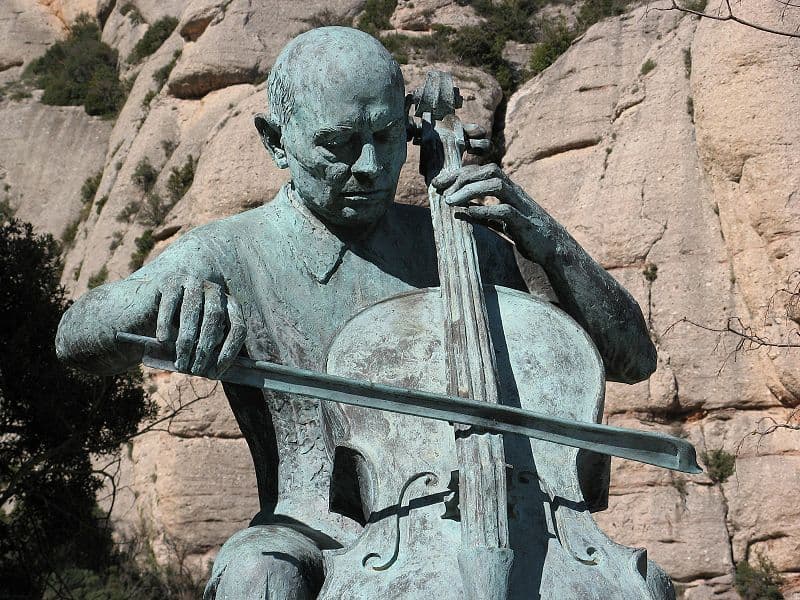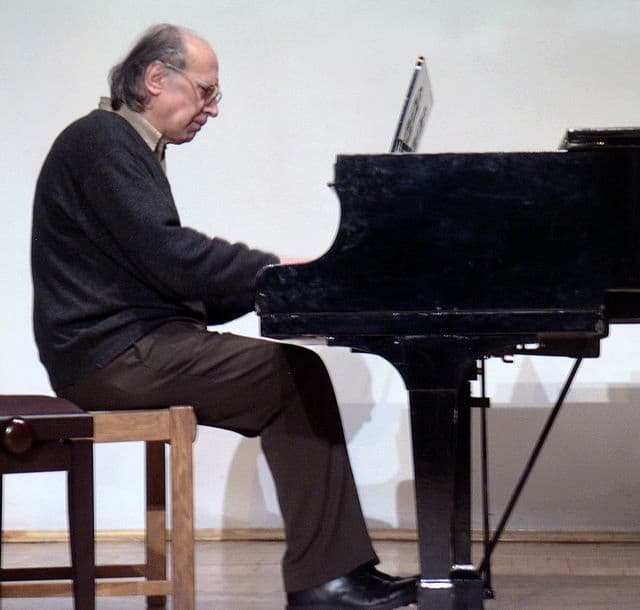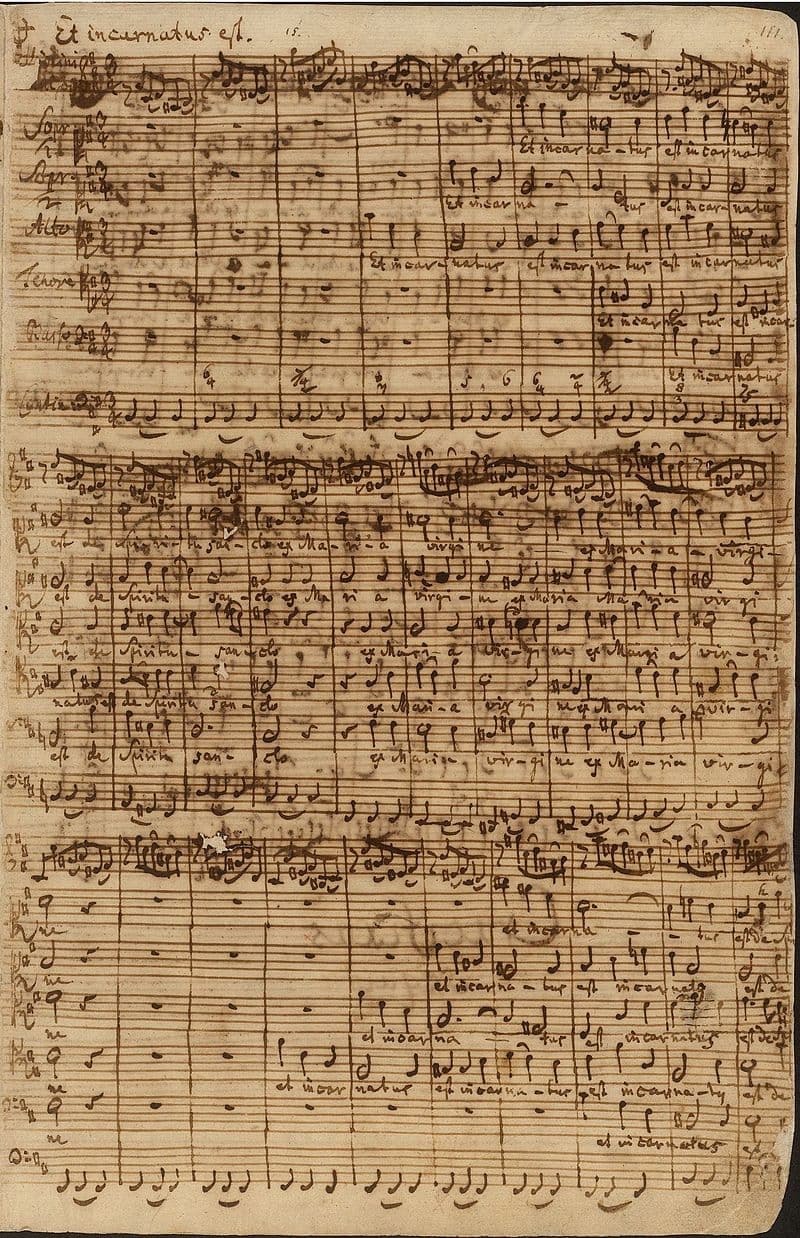By Georg Predota

© National Today
In such times of deep political and ideological crisis, it is once again the musical community calling for an end to hostilities and musically praying for peace. And at the head of the class stands once more the celebrated cellist Yo-Yo Ma, appointed by the United Nations a “Messenger for Peace.” Yo-Yo Ma has been reaching out to people all over the globe, inspiring them to address the many challenging social issues we face today. In a recent concert with the New York Philharmonic, he performed a work that Pablo Casals often played to protest war and oppression.
Pablo Casals (1876-1973) was one of the greatest cellists of the twentieth century. He had to flee his native Spain in 1939 when dictator Francisco Franco took control at the end of the Spanish Civil War. Together with thousands of other refugees, Casals was housed in a refugee camp in France. “Casals spent much of his time delivering food and clothing to fellow refugees, and he continued to aid them throughout his life.”

Pablo Casals’ centenary statue
Yo-Yo Ma, at the age of sixteen, played in an orchestra under Casals’ direction. He recalls, “I never forget the way his mind and body would radiate vitality the moment he raised his baton… He saw himself not primarily as a cellist but as a musician, and even more as a member of the human race.” His personal anthem, “The Song of the Birds,” is a traditional Catalan Christmas song and lullaby, and after his exile in 1939, Casals would begin each of his concerts by playing his arrangement for cello.
It might come as a surprise, but the patriotic hymn “Prayer for Ukraine” dates back to 1885, and to a time when Ukrainian culture and language were once again suppressed by the government of Imperial Russia. It has been a very long struggle for independence for Ukraine, as different conquerors have mercilessly fought over this land rich in natural resources and culture. There was a short-lived revolution in 1919 brutally suppressed, and the Soviet occupation inflicted one tragedy after another.

Valentin Silvestrov
During the famine of the 1930s, millions of Ukrainian peasants starved to death because of the criminal policies of Joseph Stalin. The Nazi occupation of Western Ukraine saw the implementation of the “Final Solution,” first applied in cities whose wealth and cultural standing depended entirely on a vast Jewish population. And then there has been this perpetual tug of war over the Crimean Peninsula. Ethnic cleansing at the command of various Russian heads of State was repeated under Stalin, and then once again in 2014 after the Russian occupation. Instead of painting himself as a victim of Western aggression, Vladimir Putin and his shadow puppets should rightfully stand trial for committed war crimes at the International Criminal Court in The Hague.
On 23 February, Anatolii Vasylkovskii took the Ukrainian national chamber ensemble known as the Kyiv Soloists on a regular two-week tour to Italy. One day later, Russian troops invaded Ukraine, and he remembers, “When we arrived in Italy, many of our members phoned their families and heard that there had been bombings.” The focus of the tour changed in an instant, as “we had to spread the message that Ukrainians are peaceful people.” Relying on the solidarity of other ensembles and orchestras, who hosted them in their concert halls and homes, the tour was extended across Europe. Anatolii emphasized, “We want to dedicate these concerts to our families, our country, our army, which are now fighting for the democracy of the whole world.” The Kyiv Soloists want to convey a “message of peace and solidarity with the people of Ukraine and of love for the families and friends they have left behind.” Their performances are no longer simply aimed at cultural exchange and musical enjoyment; they are a form of activism. “Our music-making is now a prayer for peace.”
If I may be permitted, let me add my personal musical prayer for peace by turning to the music of Johann Sebastian Bach. In 1817, a critic called Bach’s Mass in B minor “the greatest work of music in all ages and of all people.”

Bach’s B minor Mass, BWV 232
While this kind of assessment might need a bit of clarification, the work is significant because we find a Lutheran composer setting the complete Latin text of the Catholic Mass Ordinary. So, how does a devout Lutheran musically deal with the line in the Creed, “and I believe one holy catholic and apostolic Church?” That particular text receives two melodies sung by the choir simultaneously, and in perfect harmony. One is the traditional melody sung by Roman Catholics, and the other is a Lutheran chorale melody. The language of music, after all, has the distinct ability to console and unite. Let us now join the Bach Collegium Japan in Bach’s short prayer for peace, the “Dona Nobis Pacem” (Grant us Peace) from his B-minor Mass.
No comments:
Post a Comment